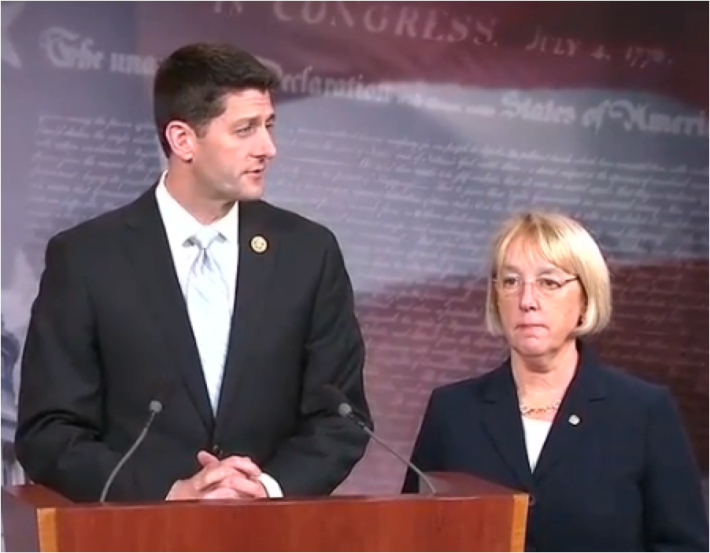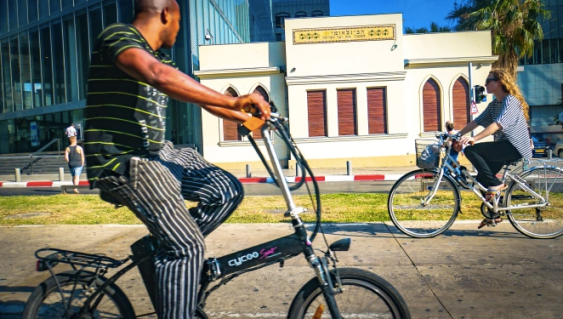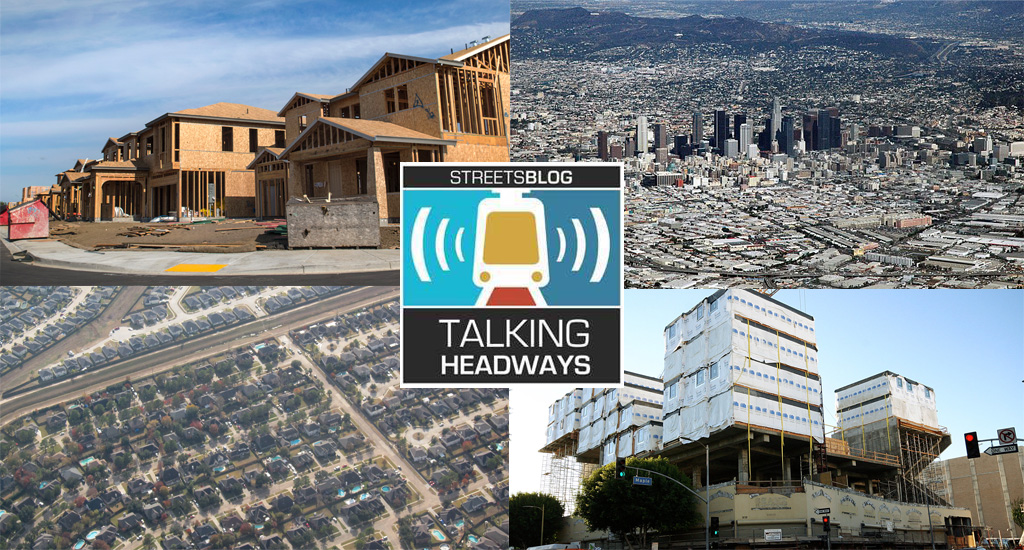The House of Representatives is preparing to vote on that rarest of Capitol Hill treasures -- a bipartisan budget deal. If both houses approve the deal, negotiated by Democratic Senator Patty Murray and Republican Congressman Paul Ryan, it will be the first time since 2010 that Congress has passed a budget.

The deal would erase some sequester cuts and split the difference between the House budget of $967 billion and the Senate proposal’s $1.058 trillion number. The final budget would come in at $1.012 trillion.
The deal would bring the discretionary budget to about $491 billion. If the modest increases are applied evenly across all non-defense agencies, it would mean that the Transportation and HUD (THUD) budget would still suffer a $1.58 billion cut from 2013 levels, according to David Burwell of the Carnegie Endowment for International Peace, but it’s $8 billion more than the House’s starvation bill of about $44 billion.
“This will allow all THUD programs to continue to operate with about a 2 percent cut from FY2013 levels,” Burwell said, “including TIGER, Amtrak, Transit New/Small Starts, etc.” A 2 percent cut starts to sound pretty good when you realize THUD was looking at a 7 percent cut before this deal materialized.
Given the fact that Senate Budget Committee chair, and co-author of this deal, Patty Murray also chairs the THUD Appropriations Subcommittee -- and has “great affection” for the TIGER program, Burwell indulges the idea that “we may well get a strong TIGER in our stocking this Christmas, not a lump of coal.”
Unfortunately, the agreement doesn't keep the transit tax benefit at the same level as parking, so while people who drive to work would see their tax-free benefit jump from $245 to $250, transit commuters would see theirs drop from $245 to $130.
However, Transportation for America’s David Goldberg sees much cause for optimism:
The deal also includes a “reserve account” for infrastructure that gives Congress and authorizing committees permission to spend more on transportation and other infrastructure, provided they can pay for it either through cuts elsewhere or increased revenue -- by, say, raising the gas tax. This is good news, because, while it by no means guarantees positive action, the agreement at least indicates bipartisan acknowledgment that more investment in transportation may be warranted.
The mode of transportation most affected by the deal is aviation, as it would more than double the TSA's "9/11 fees" on airline tickets -- from $2.50 per nonstop flight ($5.00 for a flight that requires a connection) to a flat $5.60 each way. This would generate an estimated $12.6 billion for the treasury over the next decade.
The bill is stirring up controversy among Republicans, as it’s essentially a signal that the party is giving up the crusade to cut spending at all costs. It puts the matter to bed, for the time being at least, and allows Congress a little bit of breathing room to address other issues. Republican leadership is hungry for this opportunity and, over the objections of the far right, has scheduled a vote for late this afternoon. The deal is expected to pass.




